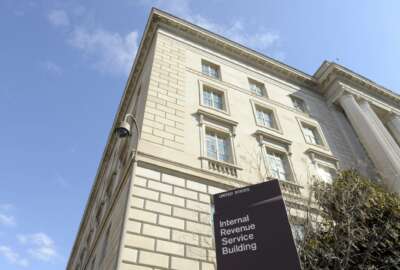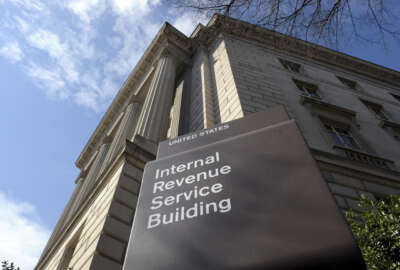
IRS advisory council returns focus to adequate funding for tax agency
The council also wants the IRS to consider how it can help the agency in the future.
The organization charged with bringing together the Internal Revenue Service and the public is adding its voice to the chorus calling for more funding for the tax agency.
In its 2017 annual public report, the IRS Advisory Council identified adequate funding for IRS as its top issue.
“Crafting the IRS’s budget has always entailed a balancing of competing interests,” the report stated. “We reluctantly conclude, however, that the balance has been skewed in recent years. Actions to defund mandated programs and otherwise diminish the IRS are, in our view, ill-advised, and counterproductive. They do a disservice not so much to the agency and its employees, but to taxpayers and the nation as a whole. Because underfunding prevents the IRS from delivering high-quality customer taxpayer service and otherwise doing its job, it harms all taxpayers by impeding the IRS’s efforts to fairly and fully administer the laws.”
The council highlighted two other priorities in its general report: attendance by compliance personnel at certain appeals division conferences, and the future of the council itself.
The advisory council has 21 members who represent a variety of stakeholders under the umbrella of tax administration.
The report reflects the IRSAC’s work during 2017, which included at least one public meeting, as well as feedback from IRS officials and members of the public.
“This year’s IRSAC includes enrolled agents, certified public accountants and lawyers,” the report stated. “These members, who come from firms of varying sizes, help taxpayers prepare and file their tax returns and otherwise comply with the law, and they represent taxpayers in disputes with the IRS, both administratively and in court. The group also includes law and accounting professors, a state revenue official, a large city taxpayer advocate, a corporate tax executive, an appraiser and a software developer.”
Last year’s general report focused on compliance and penalties and the Office of Servicewide Penalties, and IRSAC applauded the progress made by the office in studying the effectiveness of its programs and whether certain penalties should be reduced.
“The IRSAC commends OSP for these recent efforts, and encourages the OSP to bring even greater transparency to its activities,” the report stated. “The IRSAC believes that properly understanding the reasons for taxpayer noncompliance (including whether it was volitional or inadvertent) is key to ensuring taxpayers’ perception of the fairness of the tax system.”
The report also includes research and recommendations from IRSAC’s four subgroups. Those subgroups reviewed large business and international, digital services, small business/self-employed and wage and investment, and the Office of Professional Responsibility.
Failed funding
In the past 10 years, the council has listed funding five times as a top issue in its reports.
The IRS is about $900 million below its 2010 funding levels, and has lost about 20,000 full-time employees in the same amount of time. About 7,300 of those employees were compliance personnel.
“The IRSAC wholly supports providing adequate funding to the IRS,” the report stated. “We say this as a representative group of professionals who deal with the tax law, the tax agency and taxpayers on a daily basis. The continued failure to do so will gut our tax system, and jeopardize the IRS’s efforts to collect the revenues necessary for the government to ‘provide the common defense and promote the general welfare.'”
Compliance and appeals
A second focus of the IRSAC is whether a new practice by the IRS to have compliance personnel attend certain appeals conferences is going to have a negative effect on the appeals process.
“While compliance personnel and representatives of the IRS Office of Chief Counsel have participated in the past in pre-conferences with appeals and the taxpayer (if they are held), they generally do not participate beyond that point,” the report stated. “This separation of appeals from the compliance function and counsel helps safeguard the independence and impartiality of appeals.”
In May, a pilot program started that requires compliance personnel to attend some appeals team conferences.
Among the concerns is how the attendance of a compliance worker could detract from a taxpayer’s confidence in the independence and impartiality of the appeals process. Adding another person to a meeting could also cause scheduling problems.
“It could change in the customary dynamics of the appeals process, undermining its core value,” the report stated. “[Another concern] is that the involvement of compliance personnel in appeals could disrupt the taxpayer’s working relationship with the examination team in future years.”
IRSAC recommended reinstating the original policy of limited involvement, or at least evaluate the ongoing pilot.
The future of IRSAC
While IRS takes steps to address its own future and the evolution and changes that come with it, the council is asking the agency to also consider its role in those plans.
IRSAC proposed the agency review how the council can operate most effectively, especially given the fact the agency will be under the leadership of a new commissioner.
Though it made no specific recommendations for the review, the council suggested looking at how often it should file interim reports with the commissioner and if there’s another role it could fill when it comes to stakeholder outreach.
Thank you
IRSAC also tipped its hat to former IRS Commissioner John Koskinen, who finished his term earlier this month.
The council included a portion of a letter to the commissioner that it sent him before his departure.
“The daunting challenges confronting the agency — including budget constraints, antiquated IT systems, identity theft efforts, and mandates to implement new legislation as complicated, capacious, and controversial as the Affordable Care Act and the Foreign Accounts Tax Compliance Act — would give many, if not most, leaders pause,” the letter said. “But you embraced them and the intense scrutiny and oversight that come with leading an $11 billion organization that interacts with nearly every American.”
Copyright © 2025 Federal News Network. All rights reserved. This website is not intended for users located within the European Economic Area.





